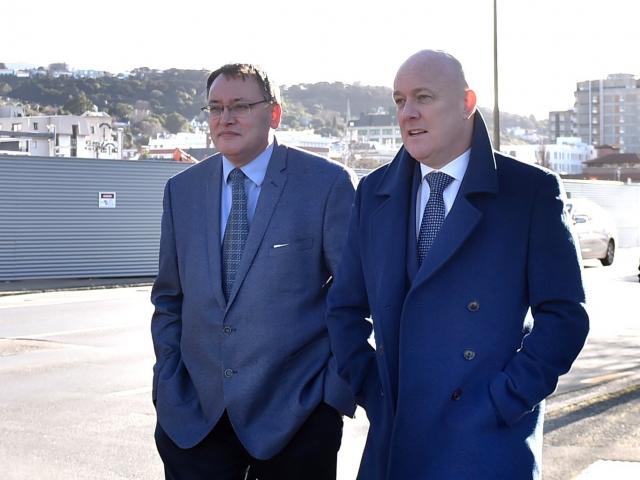
"National promised at least an additional $30 million on top of the $1.6 billion. That’s a costly exercise and it needs to be done right," Mr Willis said in Parliament yesterday during a special Local Issues debate.
"The PM says that he is focused on delivering the things that matter to our communities ... and yet I have submitted many questions asking whether National will honour its pre-election commitment and the [health] minister will not give a straight answer."

National leader Christopher Luxon and the party’s then health spokesman Dr Shane Reti came to Dunedin in July last year to pledge that proposed cuts to the hospital by the Labour government would be reversed.
Dr Reti, now the Minister of Health, has been quizzed many times since the election by Mr Willis, Labour MPs, Dunedin city councillors and the Otago Daily Times, about whether National’s commitment to the hospital project stands, but he has yet to give an unequivocal statement that it does.
Mr Willis, whose father-in-law had been part of the committee which oversaw the initial design of the new hospital, said that during the election campaign he had been heartened by National’s pledge to fully fund the hospital.
However, he was dismayed that now it could not give a basic commitment to the build.
"The whole of Dunedin and Otago is desperate to hear ... why can’t they just fund the decent hospital they promised during the election campaign," Mr Willis said.
"They have mislaid their cast iron promise to fund our hospital ... for once, it would be wonderful if this government would simply honour its promise to fully fund the Dunedin hospital."

Taieri Labour MP Ingrid Leary, who is her party’s "buddy" MP for the National-held seat of Invercargill, spoke about a public meeting in the southern city on Saturday night on youth crime.
"We've seen headlines, actually, from the Mayor of Invercargill wanting these children to be treated as adult criminals," Ms Leary said.
"There was only one youth voice in the room, and that was a really brave young woman called Paige. She was challenged about what she said, and she made the point that youth don't feel safe to speak in those spaces.
"Now, I don't know if that's a general observation or if that's particular to that meeting and to the way it was set up by the conveners of the meeting, but Paige insisted on evidence-based solutions."
Ms Leary said that the Invercargill Initiative had shown that 23% of youth in Invercargill lived in deprivation, much higher than the national average, and that there were intergenerational issues around parenting, violence and poverty.
"As much as the council and the mayor and the local MP Penny Simmonds would love to have had a silver bullet to resolve this issue, it is multifaceted ... listen to all the voices and not just take the easy line, which is making the youth the fall guys for a problem that really belongs to the whole of our communities."
National Southland MP Joseph Mooney spoke about the pressure on southern infrastructure caused by the region’s burgeoning population.
"Southland has the second biggest roading network in New Zealand . . . we have 1121 bridges and, of those, at present, 68 bridges are either closed or weight restricted, and 134 of those bridges will require replacing by 2034," Mr Mooney said.
"Recognising that there are big roading challenges across the country ... we do have some significant challenges with our bridges, which is also reflected in the Central Otago District Council, which has at least 30 bridges - 17% of the network - that will be near the end of their useful life within the next 10 years."












